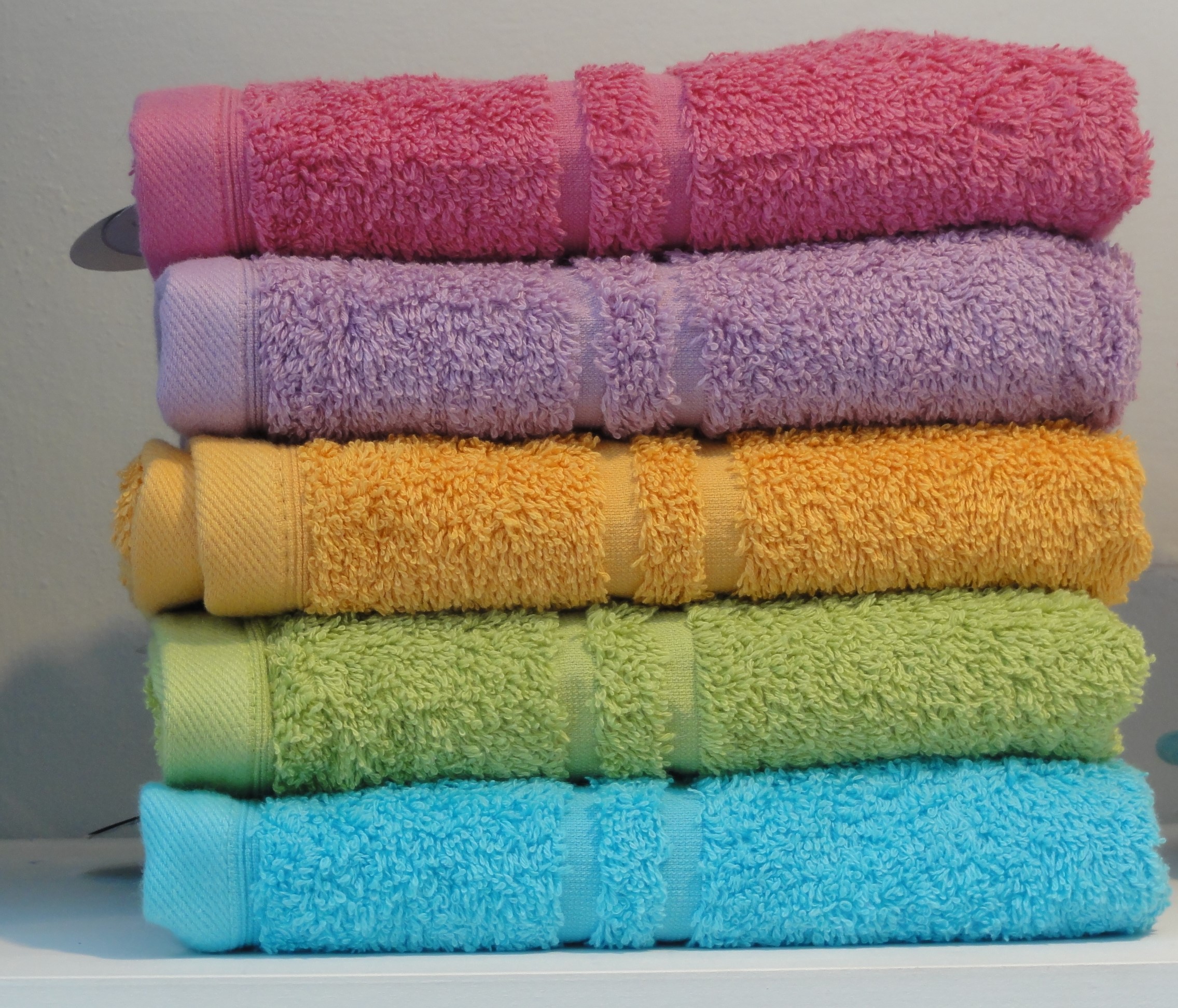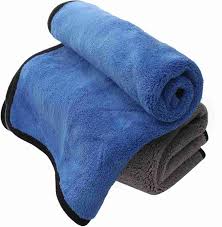Towel Cleaning Goes Beyond the Refresh!

Ah, the towel. A familiar friend at the end of a refreshing shower, its soft embrace a symbol of comfort and renewal. We instinctively reach for it, trusting it to whisk away moisture and leave us feeling pampered. But have you ever stopped to consider the unseen world that might linger within its folds? While a fresh towel undoubtedly enhances the post-shower experience, it serves a far more critical purpose than mere indulgence. Regular cleaning and replacement of towels are not simply hygiene best practices; they are essential steps in safeguarding your health.
From Bath time Bliss to Breeding Ground:
Towels are workhorses in the bathroom, absorbing a multitude of things beyond just water. Dead skin cells and sweat are constantly being shed, leaving their residue behind in the fabric’s fibers. Hair products, from conditioners to styling gels, can also coat the towel’s surface. Even traces of makeup, like foundation or mascara, can find their way onto towels during routine cleansing.
Unfortunately, this constant barrage of organic material creates a prime environment for the growth of microorganisms. Bacteria, which thrive in warm and damp conditions, readily multiply on soiled towels. Fungi, including mold spores, can also find a foothold, especially in poorly ventilated bathrooms where moisture lingers. This becomes a particular cause for concern, as these unwelcome guests can not only generate unpleasant odors but also pose potential health risks.
The Risks of Dirty Towels:
Leaving napkins unchanged for extended periods can lead to several health problems:
Unhygienic towels can become breeding grounds for harmful microorganisms, putting your skin and health at risk.
- Skin Irritation and Infections: Bacteria, like E. coli and Staphylococcus aureus, thrive in moist environments. When these bacteria linger on unwashed towels, they can easily transfer to your skin during drying, potentially leading to a variety of unpleasant conditions. This can include the development of acne breakouts, itchy rashes, and even painful boils.
- Athlete’s Foot and Fungal Threats: Damp towels create a perfect haven for fungus to flourish. This increases your risk of contracting fungal infections such as athlete’s foot, jock itch, and ringworm. These conditions can cause significant discomfort, redness, itching, and even cracking of the skin.
- Respiratory Issues: Beyond skin problems, mold spores can also find a home on damp towels. If you have allergies or asthma, inhaling these spores can trigger allergy symptoms and worsen existing respiratory problems.
Beyond the Shower: Hygiene Towel Tips:
Frequent Washing is Key: To maintain optimal hygiene, aim to wash bath towels after 3-4 uses. Since hand towels, particularly those used in kitchens, come into contact with more frequent messes, consider laundering them even more often. This ensures the removal of dirt, sweat, and dead skin cells that can harbor bacteria.
Hot Water and Quality Detergent: For a deep clean that effectively eliminates bacteria and germs, utilize your washing machine’s hot water cycle. Ideally, the water temperature should reach at least 140°F. Additionally, don’t skimp on the cleaning power – use a good quality laundry detergent specifically formulated for towels.
Thorough Drying is Essential: Damp towels are breeding grounds for bacteria. Avoid the temptation to leave them hanging in a humid bathroom. Instead, ensure complete drying by using your dryer’s high heat setting. Alternatively, on sunny days, hang your towels outdoors for a natural and fresh-smelling drying experience.
Disposable Options for Specific Scenarios: When venturing into environments like public restrooms or gyms where hygiene standards may vary, consider using disposable cloths. This helps minimize the risk of cross-contamination and protects you from potentially harmful bacteria.
Personalize Your Towel Usage: Sharing towels is a surefire way to spread germs. To promote good hygiene practices, encourage everyone in your household to have their own designated towels. This simple step can significantly reduce the transmission of bacteria and keep everyone healthy.
Read: The Unexpected Benefits of Visiting A Spa!
Microfiber Towels:
These are becoming increasingly popular for their quick-drying properties and ability to resist bacterial growth. They’re a great option for individuals with sensitive skin or those seeking extra hygiene.

Environmental Benefits:
There are several ways you can contribute to environmental sustainability in your laundry routine. One approach is to extend the lifespan of your clothes and reduce the overall number of washes by wearing them multiple times before throwing them in the hamper. Additionally, opting for cooler water settings during washing cycles uses significantly less energy compared to hot water. Finally, incorporating microfiber towels into your routine can further minimize environmental impact. These towels are incredibly effective at absorbing dirt and moisture, often allowing you to clean surfaces with just water, eliminating the need for additional cleaning products that can contain harmful chemicals. By implementing these simple changes – washing less frequently, using cooler water, and leveraging microfiber towels – you can make a positive impact by reducing water and energy consumption, ultimately contributing to a more sustainable future.



Hairstyles Color
It is my belief that mesothelioma can be the most deadly cancer. It has unusual attributes. The more I really look at it the greater I am confident it does not react like a real solid human cancer. In the event mesothelioma is a rogue virus-like infection, therefore there is the possibility of developing a vaccine as well as offering vaccination for asbestos exposed people who are vulnerable to high risk with developing potential asbestos connected malignancies. Thanks for sharing your ideas for this important health issue.